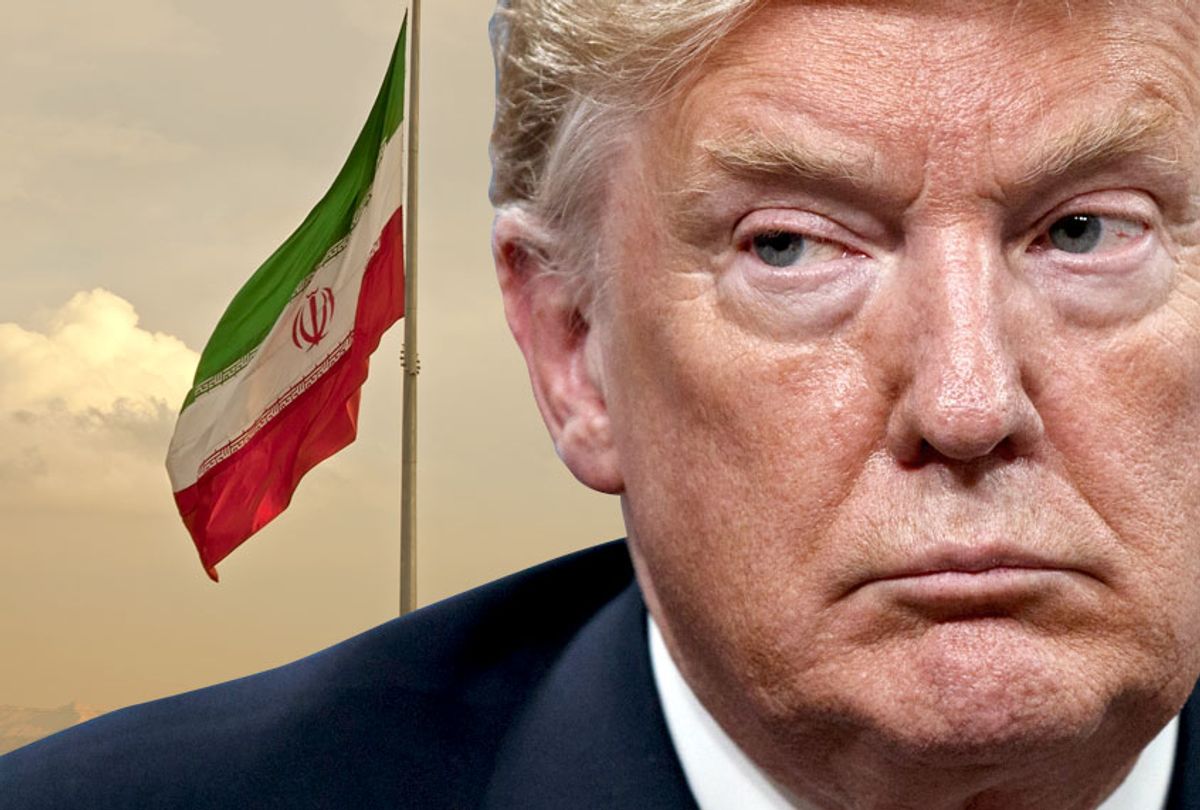A new report reveals that Iran has exceeded a limit imposed by former President Barack Obama's 2015 nuclear deal on the quantity of nuclear fuel it is allowed to possess, raising questions about the effectiveness of President Donald Trump's strategy toward the Middle Eastern nation.
Under the Iran nuclear deal, Iran's low-enriched uranium stockpile was not allowed to exceed 660 pounds, according to the New York Times. That limitation was established to prevent Iran from developing a nuclear weapon, and although violating that limit does not mean that Iran already has the capacity to create nuclear military technology, it indicates Iran has abandoned the terms of an agreement Trump has already said he no longer wishes to honor.
Iran's semi-official news agency Fars broke the story, with the report claiming that representatives of the International Atomic Energy Agency found the nation had surpassed the 2015 limitation. A spokesman from the agency confirmed Monday to reporters that the stockpile surpassed the 2015 limit.
Because Secretary of State Mike Pompeo said last month that the U.S. would never permit Iran to get within one year of possessing the fuel necessary to develop a nuclear weapon, this development could add even further tension to the already fraught bilateral relationship between America and Iran. The Trump administration did not have an immediate reaction to the announcement.
Trump's policies toward Iran have been a source of considerable controversy since he took office. After abandoning Obama's nuclear deal, the president seemed to be taking a more aggressive posture toward the country, ending oil waivers to the economic sanctions imposed against the country and sending troops to the Middle East in response to growing tensions. Matters became more tense last month when Iran shot down an American military drone; the two sides differed as to the model of the drone itself.
At the same time, Trump claimed last week that he refrained from a policy proposed by national security adviser John Bolton, which would have resulted in casualties, indicating he does not wish to be viewed as a full-fledged hawk on this issue.
"I have some hawks. Yeah, John Bolton is absolutely a hawk. If it was up to him he'd take on the whole world at one time, OK?" Trump told NBC's Chuck Todd during an interview that aired last week. "But that doesn't matter because I want both sides. You know, some people said, 'Why did you put —' You know, I was against going into Iraq for years and years. And before it ever happened I was against going into Iraq. And some people said, 'Oh I don't know.' I was totally against and I was a private citizen. It never made sense to me. I was against going into the Middle East. Chuck, we've spent $7 trillion in the Middle East right now."
He added, "'We're about ready to go.' No, but they would have been pretty soon. And things would have happened to a point where you wouldn't turn back or couldn't turn back. So they came and they said, 'Sir, we're ready to go. We'd like a decision.' I said, 'I want to know something before you go. How many people will be killed, in this case Iranians?' I said, 'How many people are going to be killed?' 'Sir, I'd like get back to you on that,' great people these generals. They said, came back, said, 'Sir, approximately 150.' And I thought about it for a second and I said, 'You know what? They shot down an unmanned drone, plane, whatever you want to call it. And here we are sitting with 150 dead people that would have taken place probably within a half an hour after I said go ahead.' And I didn't like it. I didn't think it was, I didn’t think it was proportionate."



Shares